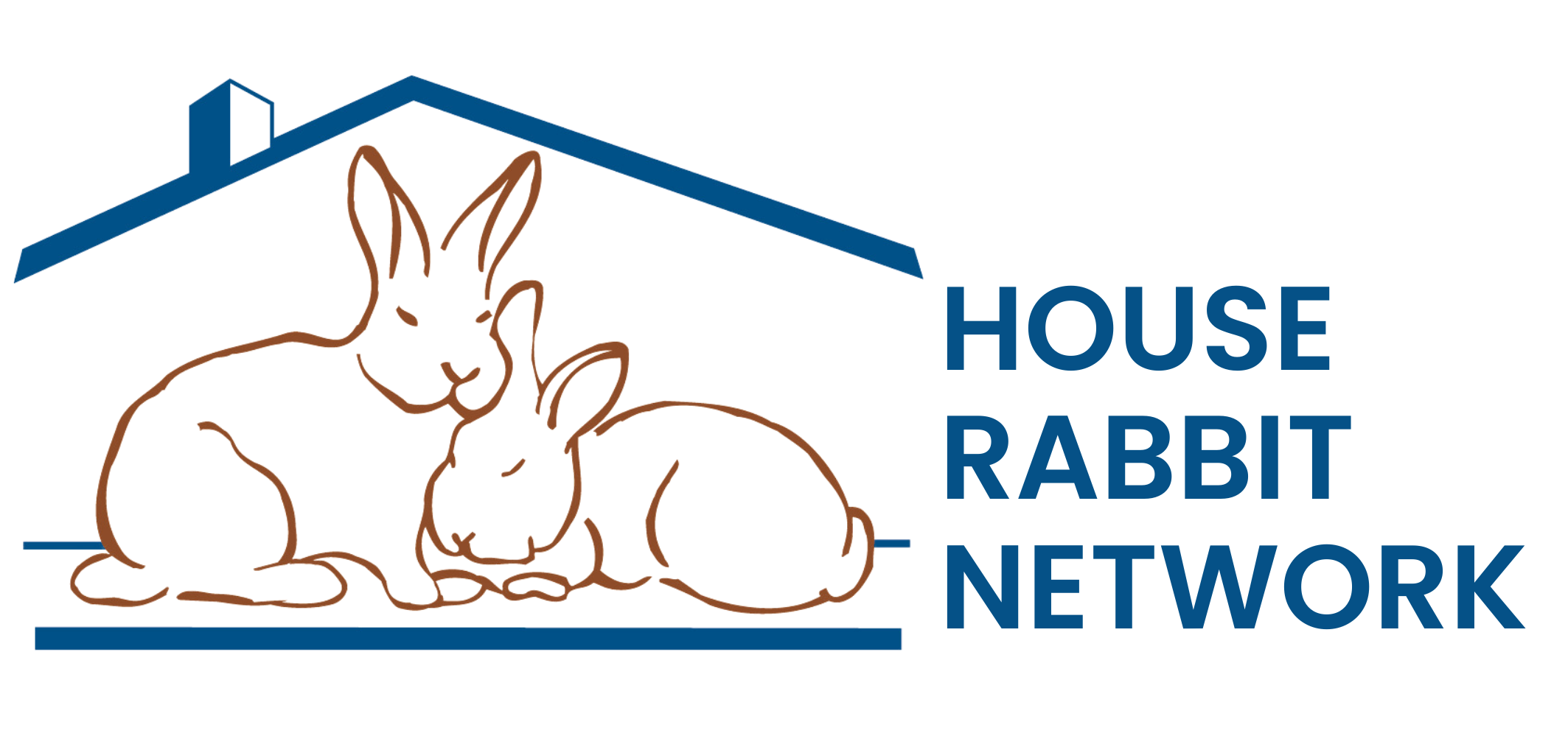Weight Loss in Rabbits

Although difficult to tell in this picture, this bun came back into
HRN’s care severely dehydrated and malnourished with teeth problems.
She had lost about 2 lbs., which for a normal 5-6 lb. rabbit is a lot.
Weight loss is not normal in a healthy rabbit and is something that should be investigated. The first thing you should do is get a scale and weigh your rabbit daily or weekly, as needed. Keep a log of the weight so it can be tracked. This will let you know if your rabbit is really losing weight and at what speed. Next, you should bring your rabbit in for a complete physical, including bloodwork. There are several possible reasons for weight loss – some of them are listed below. Keep in mind that your rabbit may not have any of these conditions, or your rabbit could have one of these conditions and not have weight loss. All medical issues should be discussed with your veterinarian.
Teeth and Mouth – Your rabbit’s mouth should be checked with an otoscope by your veterinarian. If your rabbit’s incisors are out of alignment (malocclusion) or if they have molar spurs, it might be difficult or painful for your rabbit to eat. They might be balancing between hunger and pain, eating less than they normally do. If this is the cause of your rabbit’s weight loss, rabbit dental work should clear up the situation and make it easier for your bunny to eat again. Your rabbit may need pain medication temporarily to help them eat until their mouth heals. If you have noticed a change in your rabbit’s eating pattern – no longer eating some foods they used to – that might also be a sign of dental problems.
Cancer – One of the symptoms of cancer is weight loss. Unfortunately, in rabbits cancer can sometimes be difficult to detect and even if detected, difficult to cure. Still, you should get a full blood panel and a veterinary exam to try to find anything that might be there. If cancer is discovered, you can discuss prognosis and treatment options with your veterinarian.
Parasites – E. cuniculi, coccidia and other parasites can cause weight loss in rabbits, especially if you have a younger, older or immunocompromised bunny. Sometimes you will see other symptoms such as a distended (hard, round) belly and they might seem thin in the back with a clearly visible spine. Blood work, titers, a fecal workup or other tests can be performed by your vet and then followed by the correct anti-parasite treatment.
Infection – A systemic infection, which can require your rabbit to expend all their energy to simply stay healthy, often leads to weight loss. Typically the rabbit otherwise acts normally, but you should see an elevated white blood cell count in the bloodwork. Rabbits are notorious for hiding their illnesses, and in some cases, they can have an infection that doesn’t show up in the bloodwork. This can be very difficult to diagnose. Treatment with antibiotics and a follow-up visit with the vet should clear this up, enabling your rabbit to return to a healthy weight.
Kidney Disease – Rabbits with advanced kidney disease often lose weight. Unfortunately, there isn’t much you can do for kidney disease except to provide supportive care. Work with your veterinarian on long-term care issues and offer unlimited pellets and plenty of lettuce greens to eat.
Old Age – Really old rabbits sometimes have trouble keeping weight on. They are just slowing down in general. Provide them with unlimited food and discuss geriatric care with your veterinarian.
Diet – Did you recently change your rabbit’s diet? Change the brand of pellets or switch from alfalfa to timothy hay? Increase salads? Decrease or change treats? Simple diet changes can cause weight loss. If your rabbit was a healthy weight, and no other medical issues are discovered, you may want to increase the amount of pellets you’re feeding your rabbit.
Treating your rabbit’s weight loss ultimately depends on the original cause, with the goal of helping your rabbit get back to their original weight. For example, you would treat an infection with antibiotics or have dental work done for molar spurs. For diet-related weight loss, you should encourage your rabbit to eat more food. You can also introduce foods with higher calories, such as small quantities of nuts, or if your rabbit doesn’t have any urinary or kidney issues, you can switch to alfalfa hay. Keeping your rabbit at the right weight is important for their long-term health.
by Suzanne Trayhan
